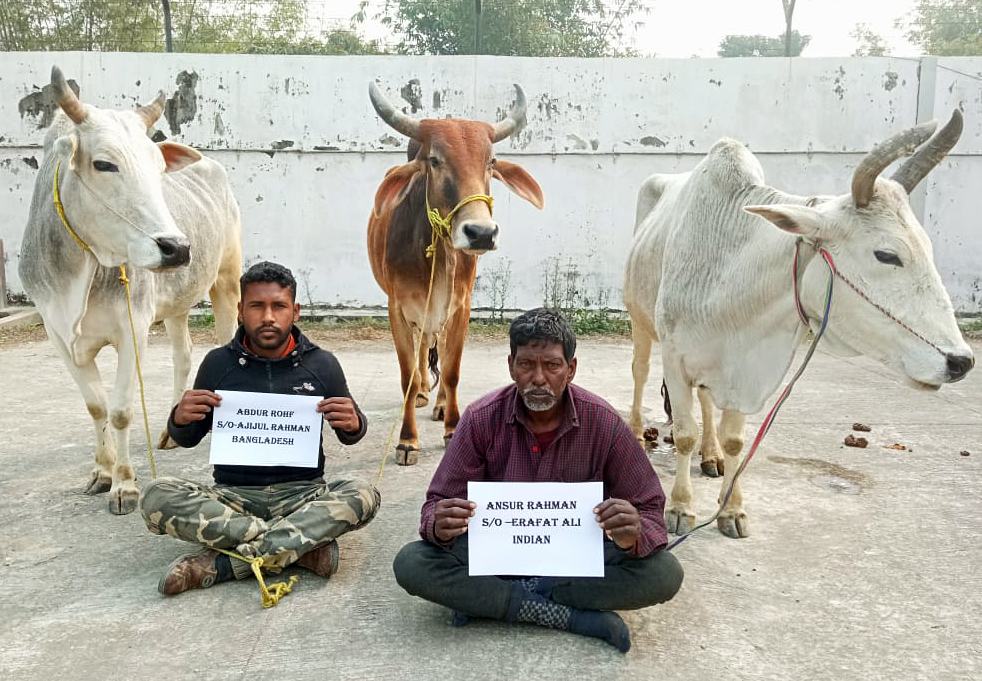The illicit market in five key Indian industries is valued at a massive Rs 260,094 crore for the year 2019-20.
The International Monetary Fund (IMF) in its recent January update of its World Economic Outlook said India remains the fastest-growing economy in the world. The outlook predicted that the Indian economy will grow at 6.1% in 2023, while in 2024, it is expected to grow at 6.8%. However, a hidden and silent element called smuggling has also been growing and could throw a spanner in India’s growth story.
As per WHO, eliminating illicit trade would gain governments at least US$31.3 billion every year, and from 2030 onwards more than 164,000 premature deaths every year could be avoided, with the vast majority of these would be in middle and low-income countries. Smuggling has different ramifications for developed and developing countries. For example, global brands (mostly found in developed countries) increase their revenue when their legally produced goods find their way as contraband to markets of developing countries. The developed world is more concerned about counterfeiting than smuggling. Interestingly, there is a World Anti-Counterfeiting Day but there is no International Anti-Smuggling Day. More of that later.
Let’s first understand the magnitude and impact of the problem. As per the 2022 FICCI CASCADE (Committee Against Smuggling and Counterfeiting Activities Destroying the Economy) study, “Illicit Markets: A Threat to Our National Interests”, the illicit market in five key Indian industries is valued at a massive Rs 260,094 crore for the year 2019-20. The five key industries surveyed were mobile phones, FMCG-household and personal goods, FMCG-packaged foods, tobacco products, and alcoholic beverages. The estimated tax loss to the government due to illicit goods in the five key industries is Rs 58,521 crore, out of which two highly regulated and taxed industries, tobacco products and alcoholic beverages, accounted for nearly 49% of the overall tax loss. There is also a total estimated legitimate employment loss of 15.96 lakh out of which the FMCG industry household and personal goods and packaged foods accounted for 68.5% of the total job loss.
FICCI CASCADE has been at the forefront of highlighting and creating awareness about the issue of smuggling and its massive impact on the Indian economy. To enhance awareness about smuggling the body launched an Anti-Smuggling Day on 11 February 2022 which should now become a yearly event in the country. The body has also been organising awareness programs on strategies to counter smuggling including inter-school competitions to educate the young who would be the future consumers. Last year in September, FICCI CASCADE organised the eighth edition of “MASCRADE” (Movement Against Smuggling and Counterfeit Trade)—a two-day event that brought together experts from India and overseas to discuss ways to counter smuggling and counterfeiting.
While dedicated forums like FICCI CASCADE will continue to do the good work, the government also needs to streamline issues that are encouraging smuggling into India. All stakeholders including different government ministries and agencies need to work together to reduce its impact. For example, the Directorate of Anti-Smuggling and Narcotics Control (AS&NC) could receive greater autonomy in its work. The Directorate of Revenue Intelligence could expand its reach as well. The Ministry of Finance can take the lead to verify, collate all illicit trade data and reveal the actual impact smuggling is having on the Indian economy. While the Ministry of Corporate Affairs could penalize brand owners if their genuine products enter India illegally as contraband. The Coast Guard has a special role to play in arresting smuggling—recent bills such as the Maritime Anti-Piracy Bill have a positive effect on reducing piracy-related smuggling as well.
Recently in Pune, while launching his book “The India Way: Strategies for an Uncertain World”, the External Affairs Minister, S. Jaishankar said that the idea behind hosting the G-20 presidency was that India should be the leading voice of the developing countries especially when the Global South is facing shortages and inflation due to the Ukraine war. India should be able to forge together the interests of similar developing countries which are facing the impact of smuggling in Asia, Africa and other continents. Smuggling should also be added to the issues that the Global South is facing today and its mitigation should become part of the India Way.
At the international level, developing countries should highlight contraband-related smuggling that is hurting their economies by leveraging bodies like UNCTAD (The United Nations Conference on Trade and Development). UNCTAD is an intergovernmental body within the UN system which promotes the interests of developing countries in world trade.
The Indian government needs to propose an international anti-smuggling day to the UN General Assembly and garner the support of other nations so that the General Assembly adopts a resolution to establish the day. Since India is hosting over 200 meetings this year as part of G-20, it is incumbent on us to raise this issue among the comity of nations in these meetings. This will be important to create global awareness and action on the issue of smuggling. It’s food for thought that if the colossal amount that the country loses to smuggling is added to the Indian economy what it will do to our growth rate.
Rajesh Mehta is an international affairs expert focusing on areas like market entry, innovation, geopolitics and public policy.

